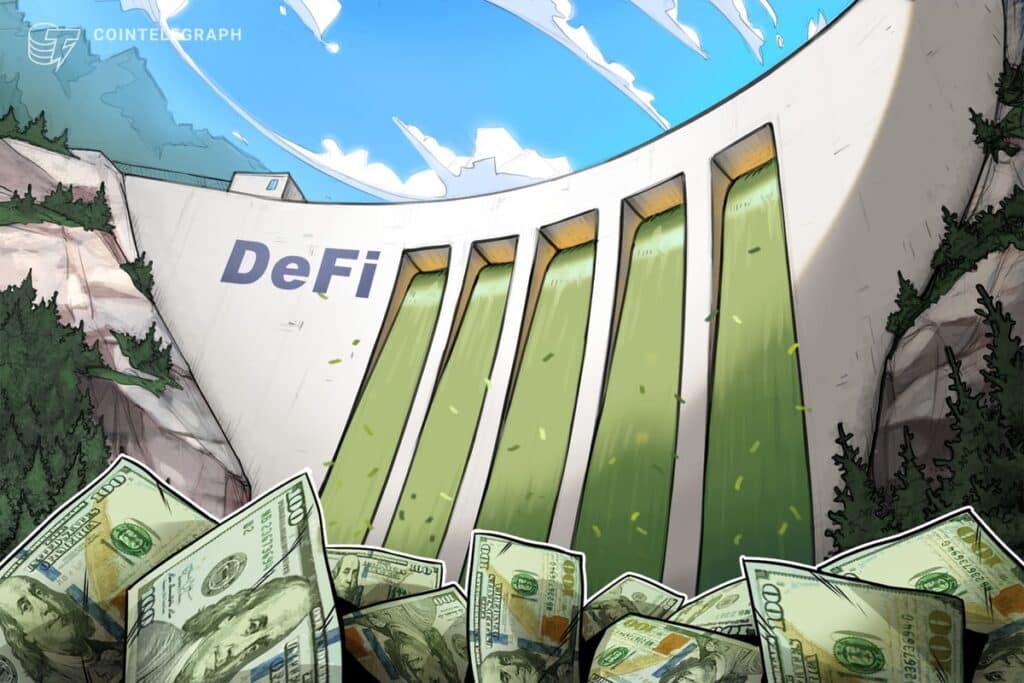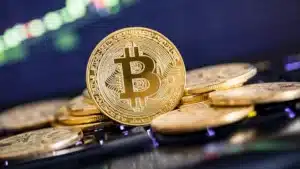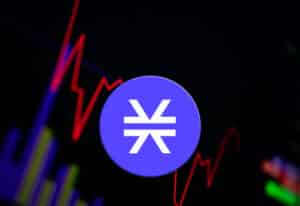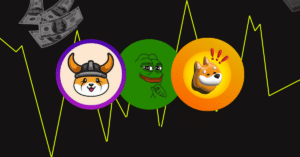Decentralized Finance (DeFi): What You Need to Know

Table of Contents
What is Decentralized Finance (DeFi)?
Decentralized Finance, commonly known as DeFi, refers to a new financial system built on blockchain technology that operates without traditional intermediaries like banks and financial institutions. By leveraging decentralized networks and smart contracts, DeFi aims to provide open, permissionless, and transparent financial services to anyone with an internet connection.
How Does DeFi Work?
DeFi works through decentralized applications (DApps) and protocols that run on blockchain networks, primarily Ethereum. These applications use smart contracts, which are self-executing contracts with the terms of the agreement directly written into code. Smart contracts automatically enforce and execute transactions without the need for a central authority.
Key Components of DeFi
Smart Contracts
Smart contracts are the backbone of DeFi. They automate and enforce the terms of financial agreements, removing the need for intermediaries. For example, a smart contract can automatically execute a loan agreement, ensuring that the borrower receives the funds and the lender gets repaid according to the predefined terms.
Decentralized Applications (DApps)
DApps are applications that run on a decentralized network, such as Ethereum. They provide a user-friendly interface for interacting with DeFi protocols. Examples of DApps include decentralized exchanges (DEXs), lending platforms, and stablecoin issuers.
Popular DeFi Protocols
Uniswap
Uniswap is a decentralized exchange that allows users to trade cryptocurrencies directly from their wallets. It uses an automated market-making (AMM) system, where liquidity providers supply funds to liquidity pools in exchange for a share of the trading fees.
Aave
Aave is a decentralized lending platform that lets users borrow and lend a variety of cryptocurrencies. It offers features like flash loans, which are instant, uncollateralized loans that must be repaid within the same transaction.
Compound
Compound is another popular DeFi lending protocol. It allows users to earn interest on their crypto holdings by depositing them into liquidity pools. Borrowers can take out loans against their deposited assets, paying interest to the liquidity providers.
Benefits of DeFi
- Accessibility: DeFi platforms are accessible to anyone with an internet connection, providing financial services to unbanked and underbanked populations.
- Transparency: All transactions and smart contract operations are recorded on the blockchain, ensuring transparency and accountability.
- Security: DeFi relies on cryptographic security and decentralized networks, reducing the risk of fraud and manipulation.
- Innovation: DeFi is driving financial innovation by enabling new types of financial products and services, such as decentralized exchanges and yield farming.
Risks and Challenges of DeFi
- Smart Contract Vulnerabilities: Bugs or vulnerabilities in smart contracts can lead to significant financial losses.
- Market Volatility: The value of assets in DeFi protocols can be highly volatile, leading to potential losses for users.
- Regulatory Uncertainty: The regulatory environment for DeFi is still evolving, and future regulations could impact the growth and operations of DeFi platforms.
- Scalability Issues: Current blockchain networks, like Ethereum, face scalability challenges that can result in high transaction fees and slow processing times during peak demand.
How to Get Started with DeFi
- Educate Yourself: Before diving into DeFi, take the time to learn about the basics of blockchain and how DeFi protocols work.
- Set Up a Wallet: Choose a secure wallet that supports DeFi interactions, such as MetaMask or Trust Wallet.
- Fund Your Wallet: Purchase some cryptocurrency, like Ethereum (ETH), and transfer it to your wallet.
- Choose a DeFi Platform: Explore different DeFi platforms and choose one that aligns with your financial goals. Start with small amounts to get familiar with the platform.
- Stay Informed: Keep up-to-date with the latest developments in DeFi to make informed decisions and stay aware of potential risks.
The Future of Decentralized Finance
The future of DeFi looks promising, with continuous innovation and increasing adoption. Potential developments include:
- Interoperability: Enhanced interoperability between different blockchain networks to facilitate seamless transactions and data sharing.
- Scalability Solutions: Implementation of layer 2 solutions and other scalability improvements to handle more transactions and reduce fees.
- Regulatory Clarity: Establishment of clear regulatory frameworks that protect users while promoting innovation.
- Mainstream Adoption: Increased adoption of DeFi services by traditional financial institutions and mainstream users.
Frequently Asked Questions about DeFi
What is DeFi?
DeFi stands for Decentralized Finance, a financial system built on blockchain technology that operates without traditional intermediaries like banks.
How does DeFi work?
DeFi uses decentralized applications (DApps) and smart contracts to provide financial services. These contracts automatically execute transactions based on predefined conditions.
Is DeFi safe?
While DeFi offers many benefits, it also comes with risks such as smart contract vulnerabilities and market volatility. It's essential to research and understand these risks before investing.
How can I start using DeFi?
To start using DeFi, set up a secure wallet, fund it with cryptocurrency, choose a DeFi platform, and begin with small amounts to get familiar with the services offered.
What are some popular DeFi platforms?
Popular DeFi platforms include Uniswap (a decentralized exchange), Aave (a lending platform), and Compound (a lending and borrowing protocol).













